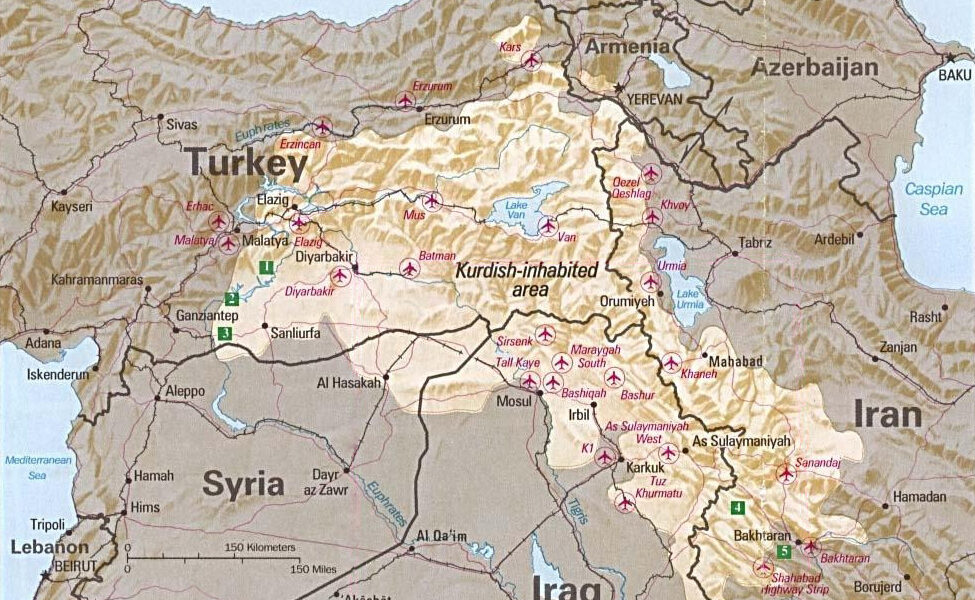On 24 April, President Joe Biden formally recognized the Armenian Genocide, making this the first U.S. administration to do so.
This mass killing of civilians resulted in the deaths of up to 1.5 million Armenians between 1915 and 1923 at the hands of Ottoman authorities. Most of the victims died in forced labor battalions or on death marches to remote camps.
Beyond the mere gesture to historical injustice, Biden’s decision signalled an important shift in American policy toward Turkey’s activities in the region. By acknowledging this infamous event, Biden rejected the longest standing gag-rule in American foriegn policy, throwing off pressure from the Turkish government who has long sought to repress historical recognition of this crime.
An official statement by the Armenian National Committee of America commended “President Biden’s principled stand on the Armenian Genocide” claiming the move “powerfully overrode Ankara’s foreign veto against honest American remembrance of this crime [and] pivots America toward the justice deserved and the security required for the future of the Armenian nation.”
Indeed, this important change to Washington’s attitude toward Turkey could not have come at a more important time. While recognizing past crimes is important, current and ongoing aggression by Turkey in the region is escalating to a startling degree.
Turkey has had a longstanding conflict with the Kurdish people for decades. The Kurds, an ancient ethnic group residing in the border region between modern day Turkey, Syria, and Iraq, have been at the center of geopolitical upheaval for much of the recent period.
Over the past three years, Turkey has escalated its attacks against Kurdish groups to its south. The first major event in this trend took place in early 2018, when the Turkish army executed an incursion into the Afrin region of Syria. The following year, Turkey launched another operation in northern Syria with the intent to eradicate the presence of Kurdish militias that had allegedly created a foothold in the area.
The series of airstrikes and ground forces attacks that took place in the first weeks of October 2019, displaced thousands and resulted in the deaths of dozens of civilians.
Now, Turkey has taken its war against the Kurds to Iraq, where recent actions by its military have left devastation unseen in the country for years.
Ankara began to widen its operations in Iraq after 13 Turkish citizens being held hostage by the Kurdish militias were killed during a February raid by Turkish forces on a Kurdish base in the country.
Turkey officially launched Operation Claw Lightning into Iraq on April 23, the very anniversary of the Armenian genocide. Over the past several weeks, the Turkish air force has bombarded several villages in northern Iraq, in the region known as the autonomous Kurdish zone.
Local residents have reported that Turkey’s bombardment using drones, aircraft, and even artillery, has left dozens of civilians dead, and damaged several non-military structures.
On 23 May, the Assyrian Policy Institute (API) noted that “yesterday, Mar Yousip Assyrian Church of the East in the Assyrian village of Musaka in Barwar, northern Iraq was damaged during a Turkish aerial campaign.” According to API, the bombings were targeting suspected positions of the PKK, a Kurdish armed group.
While Turkey claims that its actions are in order to “combat terror”, there have, in fact, been no major terror attacks in Turkey for years. The claim by Turkish officials that cross border incursions are necessary to create “safe-zones”, there are to date no records of attacks aimed at Turkey emanating from Iraq or Syria.
But more than the physical destruction inflicted by its military, the biggest effect of Turkey’s activities in Iraq have been the colossal displacement of the area’s population. Turkey’s actions in the region are beginning to look a lot like the ethnic cleansing, similar to how Turkey forced 170,000 Kurds to flee Afrin in Syria after invading the area in 2018.
During that campaign, Turkey coordinated with ISIS affiliated jihadist extremists to occupy the area and attack minority Kurds and Yazidis and force them to flee. Indeed, wherever Turkey has occupied an area in the region, whether it be Syria or Iraq, it has systematically removed minority groups deemed a threat.
In Turkey’s current campaign in northern Iraq, hundreds of Kurdish villagers have been forced to flee incessant bombing. At the same time, reports are emerging that Turkey is shipping in jihadists and their families from neighbouring Syria as part of an attempt to enforce population change.
Turkey’s army has not moved forward in Iraq unopposed. Its military has been met by fierce guerrilla resistance by Kurdish militias defending their homes and villages. But the devastation from Operation Claw Lighting is mounting by the day. Kurdish leaders have appealed to the international community to speak out against Turkey’s military action.
While the long-awaited recognition of Turkey’s crimes against the Armenians is a welcomed development, it must not stop there. Ankara’s actions in Iraq today also need to be recognized by the entire international community for what they are: an imperialist war seeking with a devious demographic objective.
Elly Abramson is a New York-based geopolitical analyst at Lorrell Consulting Group. He conducts research and analysis of current global events and political systems in various countries.


